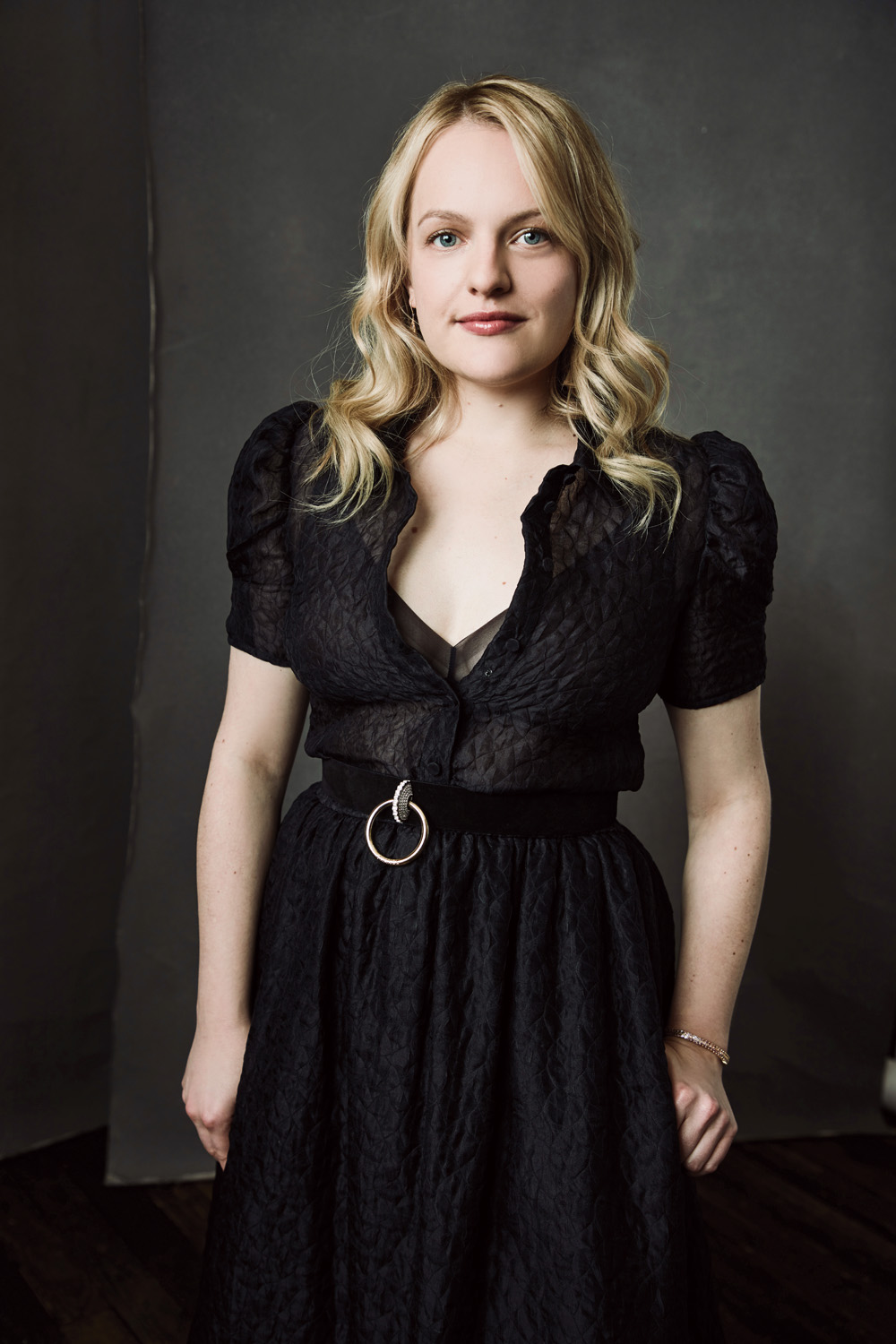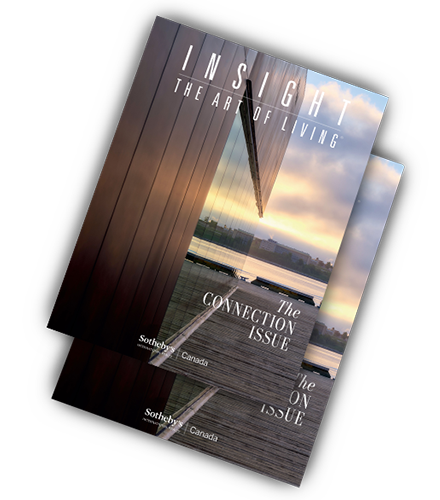With back-to-back television successes, Elisabeth Moss is helping lay the foundation for the next generation of female actors and producers.
The Handmaid’s Tale may be set in a not-so-distant future, but step through the doors of the sound stages in Toronto, where the TV series was shot secretly, and you’re instantly transported to a puritan past where a rigid caste system and loosely translated biblical values reign supreme. Dimly lit sets and a thick haze comprise the now signature backdrop of the show, which garnered two Golden Globes and 13 Emmy nominations, as the camera pans in — capturing, an intimate expression on Elisabeth Moss’s solemn face.But the moment episodic director Mike Barker yells, “Cut!” on that shot — affectionately dubbed “the Lizzie lens” by the crew — the energy immediately shifts. Moss bounds over to Barker to inspect the replays and confers with him. Figuratively swapping the character Offred’s face-concealing bonnet (inspired by the 1940s packaging for Dutch Cleanser) for an executive producer’s cap is an ongoing act for Moss. It’s an intricate tango that this 35-year-old has been dancing well before her first table read of novelist Margaret Atwood’s prophetic dystopian tale came to life.
Everyone on set — from her co-stars and the crew to her fellow executive producers — responds to Moss’s enthusiasm and team spirit. During an outdoor shoot on a blustery day, she sends out for rounds of Tim Hortons coffee and doughnuts. And on another day, for a fun break — and to lighten the mood, given the show’s dismal material — she arranges for food trucks on-site. Moss also spends long hours dissecting musical choices, potential directors and other “producery things,” as she puts it, proving that her off-screen role isn’t a vanity title but instead something she takes just as seriously as being number 1 on the call sheet.
“I realized how dedicated Lizzie is as a producer when she was in Australia shooting [TV mystery drama series] Top of the Lake, season 2,” recalls fellow executive producer
Warren Littlefield, who ran NBC in the mid-’90s during the Friends and Seinfeld era. “We’d just begun prep for Handmaid’s and I would send her a list of films to look at for various concepts. She was starring in a big-event miniseries on the other side of the planet, but within days, I would get back this complete analysis on everything I’d sent.”
That work ethic was instilled in Moss from an early age. She spent her teens cutting her teeth on meaty Aaron Sorkin material on The West Wing and later went toe-to-toe with Winona Ryder and Angelina Jolie in the haunting 1999 psychological drama, Girl, Interrupted. Still, Moss recalls spending her early 20s, living off “tiny residual cheques” and wondering about her next gig. It wasn’t until she won over producer-director Matthew Weiner for the revolutionary role of secretary-turned-ad-woman Peggy Olson in Mad Men that viewers began to see Moss as all grown up. The 2007 period piece is often cited as a frontrunner of the Golden Age of television, and Peggy was one of the reasons why.
“[Peggy didn’t do] anything that extraordinary,” Moss says of the inherent sexism the character battled for seven seasons while climbing the corporate ladder under Don Draper (Jon Hamm). “It’s just our perception of what she is. In the 1960s it was expected that’s what a secretary did…. Women are allowed to speak out against it now, whereas then, that was just the way it was. It was an accomplishment to be admired by your boss and to be liked by him. That meant you were doing well in the workforce.”
The “Queen of Peak TV” — a Moss moniker, given her subsequent pioneering roles in Top of the Lake and The Handmaid’s Tale — has proven that her own ongoing success is more complex than her on-camera roles. Her penchant for dark motherhood roles and challenging the status quo factors into it all.
“What’s interesting is all the different ways somebody can be a mother,” Moss says. “By virtue of my age, that’s going to be prevalent because for women in their 20s and 30s, that is a prevalent issue. I’m not a mother yet myself, but I’ve had to explore it in many different ways. What is on purpose is picking things I haven’t seen before or that seem complicated to me.… I don’t think there is a ‘too dark’ — it’s not about that for us [with Handmaid’s]. It’s about reality and honesty and reflecting the truth back at the audience.”
Moss has raked in eight Emmy nominations (and celebrated her first win last fall for Handmaid’s) and won two Golden Globes, but beyond the hardware and accolades, it’s her transformation into a face of feminism that has spilled the most ink. Myriad Internet memes with her face, some of which she’ll pull up on her phone as favourites, are proof.”
“Feminism is better than it’s ever been,” Moss notes. “Women and men are really embracing it in a way they never have before. It obviously needs to be reflected more in our politics and government. But as a people, we’re pretty much on the same page. Art often reflects what’s going on in the world and we’re seeing stories that are very diverse and made and led by women because that’s what we have. That’s what’s in our world.”
Now, if only everyone got that memo.
By Amber Dowling – *This article originally appeared in INSIGHT: The Art of Living | Spring 2018
Photos: Maarten de Boer, Getty Images




